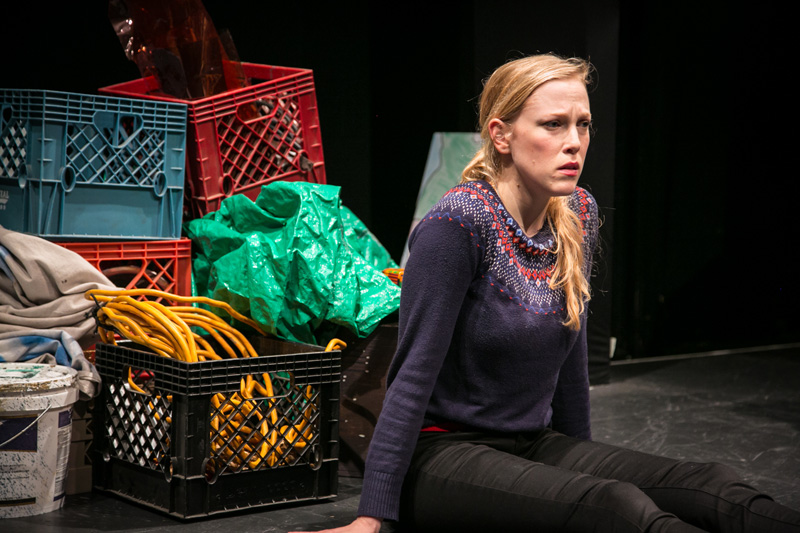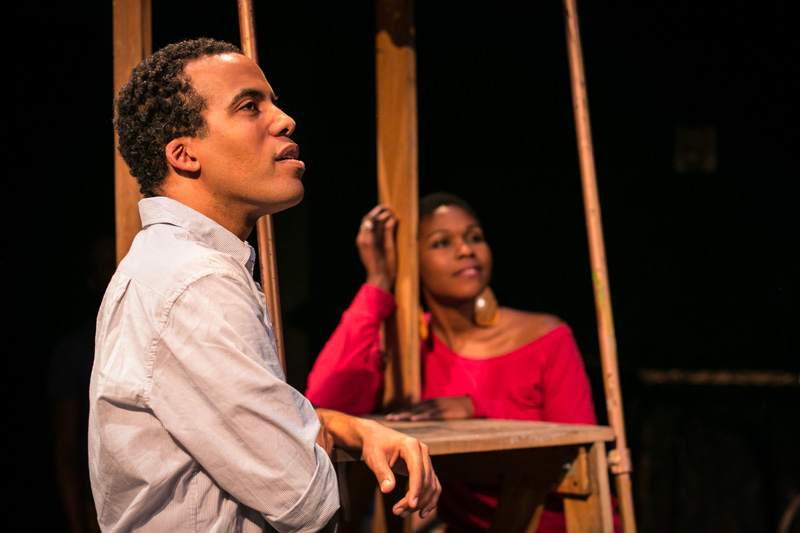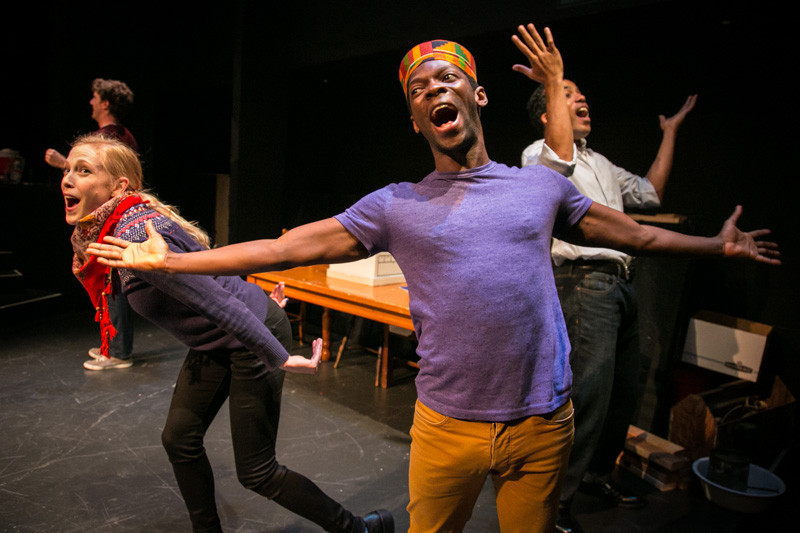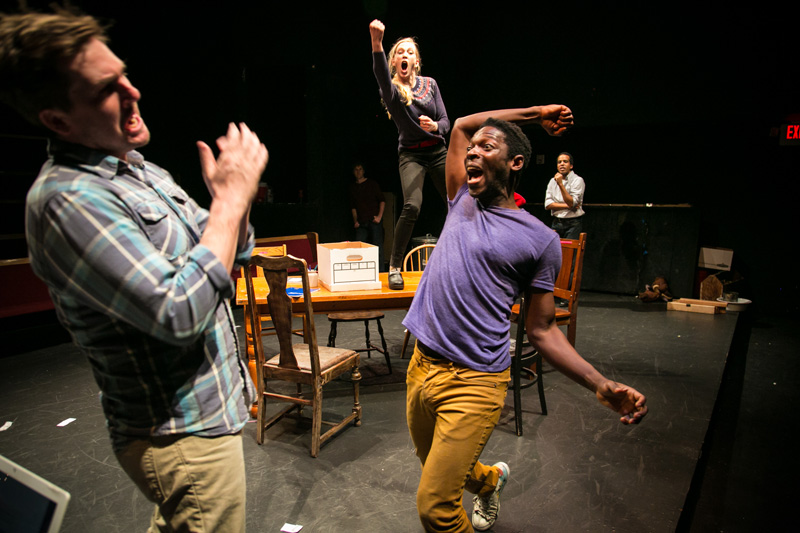There’s a wonderfully awkward earnestness about the title of Jackie Sibblies Drury’s play at Berkeley’s Ashby Stage: We Are Proud to Present a Presentation About the Herero of Namibia, Formerly Known as Southwest Africa, from the German Sudwestafrika, Between the Years 1884–1915. The name slyly captures the overeagerness of the idealistic fictional actors (played, of course, by real actors) who are putting on a play within the play. Their well-meaning but misguided zeal will take the young performers into territory both hilarious and acutely uncomfortable before the satire’s through.
The show opens with a crash course in the history of Namibia during the time that it was a German colony. Or, as the leader of the six performers explains, “There’s like a lecture that’s only sort of a lecture, and then we did this thing that is kind of like an overview before the lecture, which is before the presentation.” In brief it goes something like this: one of the tribes in the region, the Herero people, was for a time given favored status by the Germans but then fell out with them. Eventually, the Herero were pushed off their land into the desert, then put into concentration camps, where 80 percent of the tribe’s population was slaughtered.
The topic is well chosen. Not only is the 1904 genocide virtually unknown in the United States, but not many have even heard of this ethnic group to begin with.

The play’s Bay Area premiere is presented by Just Theater in association with Shotgun Players. Directed by Just co-artistic director Molly Aaronson-Gelb, We Are Proud to Present is exactly the kind of humorous and intellectually challenging new work her company is known for bringing to the Bay Area. (Eight years ago Just Theater introduced the region to the work of playwright Anne Washburn, whose Mr. Burns, a Post-Electric Play opens this month at American Conservatory Theater.) Shotgun’s 2015 season is made up entirely of works by women playwrights, and although this play isn’t part of that season proper, it fits right in.
The actors throw themselves into the introductory slideshow with enthusiasm, but signs of strife soon emerge. In her cheerful introduction to the introduction, the self-described “kind of the artistic director of our ensemble” (a gently guiding but increasingly exasperated Kehinde Koyejo) starts making passive-aggressive references to things that were not prepared as agreed. The slides aren’t quite in the right order, and the cast keeps scrambling to stay in unison.

Half of the six performers are white and half are black, which proves to be far from incidental. In fact their characters are named Black Man, White Man, Black Woman, Another White Man, and so on. “I will be playing the part of Black Woman,” Koyejo’s character says. “I am also black in real life, which you might find confusing.” We never learn any of the actors’ real names; their names aren’t important, but the labels increasingly are.



